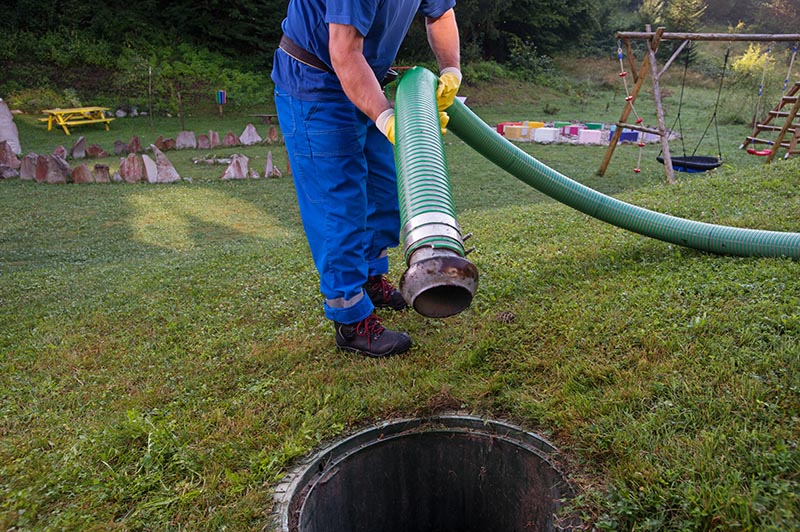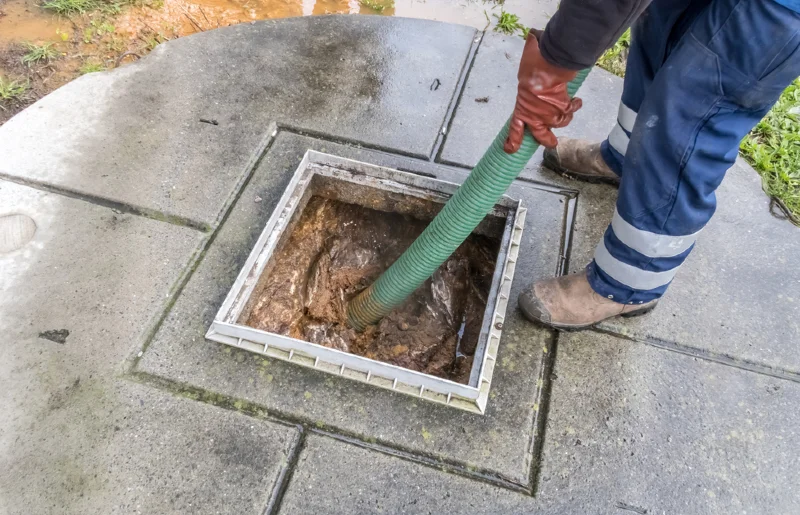How Long Does It Take to Pump a Septic Tank? What You Need To Know
-
Ed Malaker
- Last updated:

If you have a septic tank on your property, it will need regular maintenance, and you will need to empty it as part of the process. The amount of time that it will take to pump it out will vary, but it usually takes 1–3 hours. Keep reading as we look into several factors that will affect this time. We also provide tips and tricks that will help keep your tank running efficiently.
How Long Will It Take to Pump Out My Septic Tank?
Size
The size of your septic tank will be the biggest factor determining how long it takes to pump it. A septic tank can range in size from a few hundred gallons to a few thousand, and you can expect it to take 20–35 minutes per 1,000 gallons.
Sludge
If you haven’t cleaned the septic tank in a while, it might contain a large amount of sludge, which can increase the amount of time that it takes to pump.
Recent Weather
If you have had a great deal of heavy rain recently, your septic tank can contain more water than usual, which can increase the amount of time that it takes to pump.

Why Do I Need to Clean My Septic Tank?
The septic tank filters your waste through a drain field, which means it slowly disperses it into the surrounding soil through tiny holes in the bottom. However, hard waste won’t break down over time like organic matter; it will sit at the bottom of the tank, preventing waste from filtering through the holes. Over time, the tank will stop draining completely and can back up into your home. Pumping out the septic tank will remove this hard waste or sludge so your tank will work efficiently.
What Is Hard Waste?
Hard waste is waste that does not belong in the septic tank and won’t biodegrade and disperse into the soil like organic matter. Hard waste can include baby wipes, tissue, cigarette butts, feminine products, and even oil and grease. The more of these items that end up in your septic tank, the more frequently you will need to pump it out to keep it working properly.

How Often Should I Pump My Septic Tank?
We recommend pumping out your septic tank every 3–5 years to keep it running efficiently. If the tank is small for your household or you experience frequent problems with it, you might want to pump it out more often. If you have an extra-large tank, you might be able to wait longer.
How Do I Know It’s Time to Pump the Tank?
We recommend cleaning the tank regularly instead of waiting for a problem, to reduce the risk that you will need to replace the tank. That said, there are a few telltale signs that it’s time to pump out the tank.
Slow Flushing or Draining
If you notice that multiple drains in your home are draining slowly and plunging doesn’t seem to help, there is a good chance that your septic system is getting clogged and needs pumping.

Odor
If the septic system is not draining properly, odors can build up in the tank and find their way into your home. If there is a persistent smell in your house that wasn’t there before, there is a good chance that you need to pump your septic tank.
Increased Plant Growth
It could be a sign that the system is not working properly and excess fluid and waste material are getting out of the tank if you start to notice that grass, weeds, and other plants are growing better around your septic tank than in other areas of the yard.
Standing Water
If you notice standing water around your septic tank, it is a sure sign of a problem, and you will need to have the tank pumped.
Sewage Backup
A sewer backup indicates that the septic tank is overrun with hard waste, preventing the system from draining.

How Can I Prevent My Sewer From Backing Up?
Reduce Water Usage
The more water you use in your home, the more your septic tank will need to deal with, potentially leading to problems in the future. High-efficiency toilets, washing machines, and other appliances can help you reduce your water usage.
Dispose of Items Properly
Make sure everyone in your home knows not to throw baby wipes, cigarettes, cat litter, dental floss, and other items into the toilet or sink, where they can end up in the septic tank and cause a problem. It’s also important to ensure that you don’t allow oil or grease to go down the drain while cleaning the dishes.
Conclusion
It should take 20–35 minutes to empty a 1,000-gallon septic tank, but it can take longer if there is a large amount of sludge, like grease, mixed with other hard waste that will be challenging to pump out. Most people wait 1–3 hours in total. It will also take longer if heavy rains recently put more water into the system. Pumping out your system every 3–5 years can help prevent waste from building up in your system and help it run more efficiently. Proper maintenance can also help extend the lifespan of your system.
Featured Image Credit: KaliAntye, Shutterstock
Contents
